Events
The Top 20 Theatre Festivals Around The World
Slide Nr 1What makes live theatre so special is the human interaction, both between the players on stage and between actors and audience. Theatre festivals multiply that raw, creative energy, with different ensembles, directors and visitors exchanging ideas, learning from each other and trading inspiration. Get in the festival spirit at these top events around the globe.
0/21
Events
The Top 20 Theatre Festivals Around The World.
Slide Nr 2Probably the most famous performing arts festival in the world – certainly the most well-known fringe festival – is Edinburgh Fringe. In fact, unless you specify a different city, people will assume this is the Fringe you are visiting. Unlike other festivals, the programme is not curated, so navigating the highlights can be tough. On the plus side, this also makes it an extremely lively, vibrant and sociable festival, where exchanging tips about the best show and the hottest ticket in town is essential to the experience. [Image courtesy The Edinburgh Festival Fringe Society. Photo by David Monteith-Hodge]
1/21
Events
The Top 20 Theatre Festivals Around The World.
Slide Nr 3Galway International Arts Festival celebrated its 40th anniversary in 2017, with 210,000 visitors attending performances, talks, concerts and street events, as well as the festival’s first ever opera. Artistic diversity notwithstanding, theatre remains the main focus, with festival co-productions on tour throughout the year. If you can’t make it to Ireland for the 2018 edition in July, why not catch one of them in London, New York… or maybe somewhere near you? [Image: Woyzeck in Winter]
2/21
Events
The Top 20 Theatre Festivals Around The World.
Slide Nr 4The London International Festival of Theatre (LIFT) is always pushing boundaries, both literally and figuratively. In the literal sense, LIFT goes beyond the limits of the stage, hosting performances at sites like a car park in Croydon and a cemetery in Tower Hamlets. They also reach beyond the boundaries of traditional theatre performance, exploring new forms, blurring genres and disregarding conventions to encourage a new, brave, exciting vision of what theatre can be. [Image: STREB on Millenium Bridge, Photo by Julian Andrews]
3/21
Events
The Top 20 Theatre Festivals Around The World.
Slide Nr 5You can’t fully understand contemporary theatre without exploring the ancient origins of performing arts. In the Western tradition, that means Greek drama – and the best place to immerse yourself in classical and modern interpretations of Hellenic Drama writ large is the International Festival of Ancient Greek Drama. Each year, the festival hosts theatre companies from all four corners of the globe, who stage ancient Greek plays in their own languages, highlighting the universal narratives underlying the specific stories. Performances are held in ancient amphitheatres across the island Cyprus. [Photo by Foto Larko, Paphos]
4/21
Events
The Top 20 Theatre Festivals Around The World.
Slide Nr 6The Bregenzer Festspiele, named for the town on the Austrian side of Lake Constance that hosts the annual festival, is hard to beat in terms of scenery. Its spectacular floating lake stage, purpose-designed and -built for each year’s main performance, is the big attraction – and iconic enough to have featured in a Bond movie. If you aren’t lucky enough to snag one of the sought-after tickets, there are also numerous indoor shows, or you can get a guided tour of the stage between shows. [Photo Credit: Ralph Larmann]
5/21
Events
The Top 20 Theatre Festivals Around The World.
Slide Nr 7Berliner Festspiele isn’t just a festival, it’s a series of arts festivities and events, held throughout the year at two venues. Haus der Berliner Festspiele and Martin-Gropius-Bau host exhibitions, a jazz festival, a contemporary music festival, a German-language theatre “meetup” (Theatertreffen), as well as Foreign Affairs – International Festival for Theatre and Performing Arts. The latter is a two-week celebration of performance centred around the two home bases, but also stretching into urban venues like a Soviet war memorial, a church, a techno club or an art gallery.
6/21
Events
The Top 20 Theatre Festivals Around The World.
Slide Nr 8Even if you don’t find Anton Chekhov‘s whole “happy families are boring” shtick appealing, the Moscow festival named in honour of the Russian playwright may just have something in store for you. Performances range from ballet and musicals to Shakespeare and Hemingway, so actually watching Chekhov isn’t necessary. Neither is brushing up on your Russian, as performances in the “International Series” are held in different languages, mainly English.
7/21
Events
The Top 20 Theatre Festivals Around The World.
Slide Nr 9When it comes to performing arts festivals, Romania offers an embarrassment of riches. Of the many events to choose from, Sibfest is probably the most comprehensive. Sibiu International Theatre Festival, to give it its full title, hosts thousands of artists and over half a million guests each year, and will be celebrating its 25th anniversary in 2018. As always, there will be plenty of home-grown talent on display, as well as new and established artists from far and wide. [Photo by Dragos Dumitru]
8/21
Events
The Top 20 Theatre Festivals Around The World.
Slide Nr 10The Festival d’Avignon has grown to be one of the most important events in the European festival calendar. The historic French city puts its best foot forward, with venerable main stages like the Papal Palace and the Grand Opera. Meanwhile, visitors get to explore less prominent spaces thanks to the concurrent OFF Avignon Festival et Compagnies. “Le OFF”, as it is charmingly known, sees smaller companies from around the globe performing in about 100 venues scattered around the city. [Image: Antigone, Satoshi Miyagi. Photo by Christophe Raynaud De Lage]
9/21
Events
The Top 20 Theatre Festivals Around The World.
Slide Nr 11The World Puppet Theatre Festival is proof that puppetry can be so much more than kids’ entertainment. The festival, which is held every other year in Charleville-Mézières in the French Ardennes region, is the largest gathering of puppeteers in the world. It does feature family-friendly performances, but also more mature content, as well as exhibitions and puppetry workshops. Unfortunately, the last festival just took place in late 2017, so you’ll have to wait for the next edition in 2019 – or you can visit the smaller Puppetry Weekend D-365, which takes place in off years. [Photo by Marc Mesplie]
10/21
Events
The Top 20 Theatre Festivals Around The World.
Slide Nr 12Continents apart, but embraced by the same community of puppeteers from all over the world, the Ishara Puppet Theatre Trust recently celebrated its 30th anniversary with the staging of the 15th Ishara International Puppet Theatre Festival. As it takes place in Delhi, there is a more noticeable Asian influence, with Indonesian, Japanese, Sri Lankan, Taiwanese and, of course, Indian puppetry traditions represented. However, troupes from Europe, the USA and Australia perform alongside them.
11/21
Events
The Top 20 Theatre Festivals Around The World.
Slide Nr 13The Singapore International Festival of Arts (SIFA) had its first run from 1977 until 2012, returning after a two-year hiatus with new director Ong Keng Sen and brand new concepts. Now, for its 41st edition, the festival is once again under fresh direction, this time from Gaurav Kripalani. Visitors can expect a host of creative new features, as well as a line-up of works in theatre, dance and music hailing from India, Palestine, Israel, Germany, France, the USA and Singapore – including site-specific works. [Photo © Jeannie Ho]
12/21
Events
The Top 20 Theatre Festivals Around The World.
Slide Nr 14Adelaide is known as THE festival city across Australia, and its blockbuster Adelaide Festival is the most popular of the ten major arts and cultural festivals held there throughout the year. For two weeks in March, the sleepy South Australian city comes alive with theatre, music and dance. In the past 50-odd years, the festival has hosted some heavy hitters, and some of the biggest international names, but also continues to provide a platform for young local and international talent. [Image: Xenos. Photo by Jean Louis Fernandez]
13/21
Events
The Top 20 Theatre Festivals Around The World.
Slide Nr 15The Kampala International Theatre Festival, launched in 2014 with support from Bayimba Cultural Foundation and Sundance Institute Theatre Program, shines a light on East African theatre. Original productions by innovative theatre makers and projects from countries like Burundi, Ethiopia, Kenya, Rwanda, Tanzania and Uganda get top billing. Interaction between artists and their audiences is expressly encouraged, and the support of a reputable organisation like Sundance adds a sheen of international approval.
14/21
Events
The Top 20 Theatre Festivals Around The World.
Slide Nr 16Across the continent, the Lagos Theatre Festival is the largest in West Africa, with 32 companies staging 70 performances for 5,000 theatre goers. The curated programme and accompanying fringe festival have a strong British influence, not least thanks to the fact that the festival was founded by and continues to be supported by the British Council. Nevertheless, Nigerian talent and the essence of its economic capital were the real stars of last year‘s event, dedicated to exploring the “rhythm, soul and sights of Lagos.” [Photo courtesy Lagos Theatre Festival]
15/21
Events
The Top 20 Theatre Festivals Around The World.
Slide Nr 17Cape Town Fringe aims to go beyond the temporary thrill of the festival weeks by allocating part of its budget to creating stages that will endure beyond the event itself. The 2017 edition saw 103 productions staged in 13 venues, ranging from theatres to township shacks, with 80 to 90% local productions. In addition to an eclectic schedule featuring theatre, dance, comedy, jazz and cabaret, the festival closed with a buskers festival, bringing the fringe to audiences beyond festival venues. [Image: Steke. Photo by Nardus Engelbrecht]
16/21
Events
The Top 20 Theatre Festivals Around The World.
Slide Nr 18Al Bustan Festival must be commended simply for following that stage adage, “the show must go on!” In times of war and peace, it has provided a stage for international artists and local talent and given Lebanese audiences a welcome distraction at the worst of times, while reminding the rest of the world that host city Beirut is ready to reclaim its title as Paris of the East, once the ongoing regional turbulences have calmed down. Although its main focus is on classical music, it also offers opera and theatre performances in a remarkable, intimate setting. [Image: Flying Steps]
17/21
Events
The Top 20 Theatre Festivals Around The World.
Slide Nr 19Unlike most festivals, the Colorado New Play Summit shines a spotlight on playwrights. Launch Weekend features script readings, workshops and panel discussions, followed by Festival Weekend, when the latest drafts of fully workshopped plays are presented. Live audiences get the opportunity to enjoy what may just be a masterpiece in the making, the next big broadway hit or one of the plays commissioned and staged by host venue the Denver Center the following year. The festival takes place annually in February, so you may still be able to get your hands on tickets and witness art in the making.
18/21
Events
The Top 20 Theatre Festivals Around The World.
Slide Nr 20Not to be confused with Shakespeare’s birthplace Stratford-upon-Avon – or indeed any of the other towns of the same name in the UK, Australia, New Zealand, Canada and the USA – the Stratford Festival takes place in Stratford, Ontario, Canada. Here, North America’s largest classical repertory theatre company welcomes some of the most celebrated English-speaking actors in the world for a variety of productions, with a strong focus on the work of William Shakespeare. This season, the Bard’s work on show includes Coriolanus, The Tempest, The Comedy of Errors and Julius Caesar. [Members of the company in Bakkhai, 2017. Photo by Cylla von Tiedemann]
19/21
Events
The Top 20 Theatre Festivals Around The World.
Slide Nr 21It would be remiss to speak of theatre festivals without mentioning the largest of its kind in the world: The biannual Ibero-American Theatre Festival brings over 500 theatre companies from 50 countries to Bogotá and draws up to 2 million visitors, making this two-week festival as diverse and inclusive as they come. There is a guest of honour each year, which is Argentina in 2018. Read more about it here, then get thee to Colombia for the theatre spectacle to end all spectacles. [Photo: Zaguán & Alento, © Jesús Vallinas]
20/21
Events
The Top 20 Theatre Festivals Around The World.
Slide Nr 2321/21


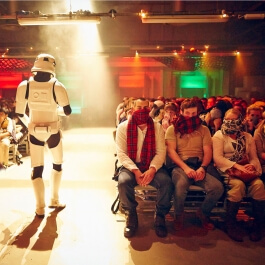
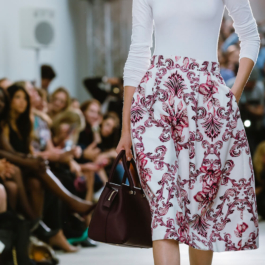


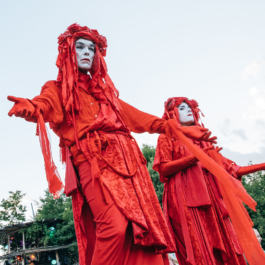
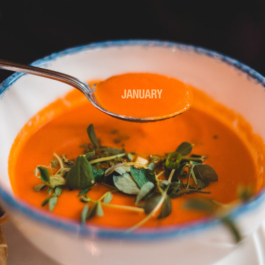

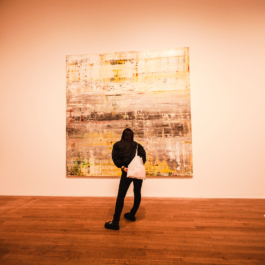

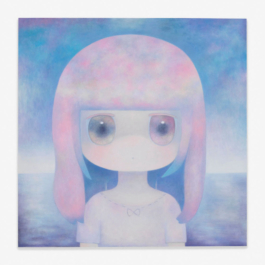

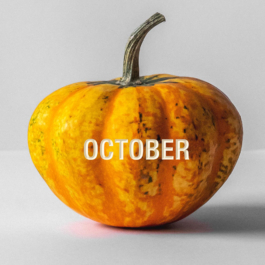
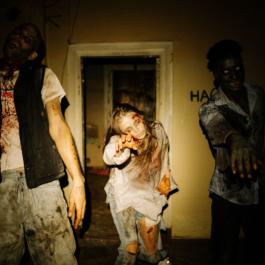
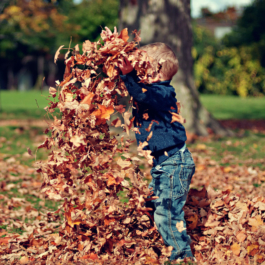
Sorry, the comment form is closed at this time.